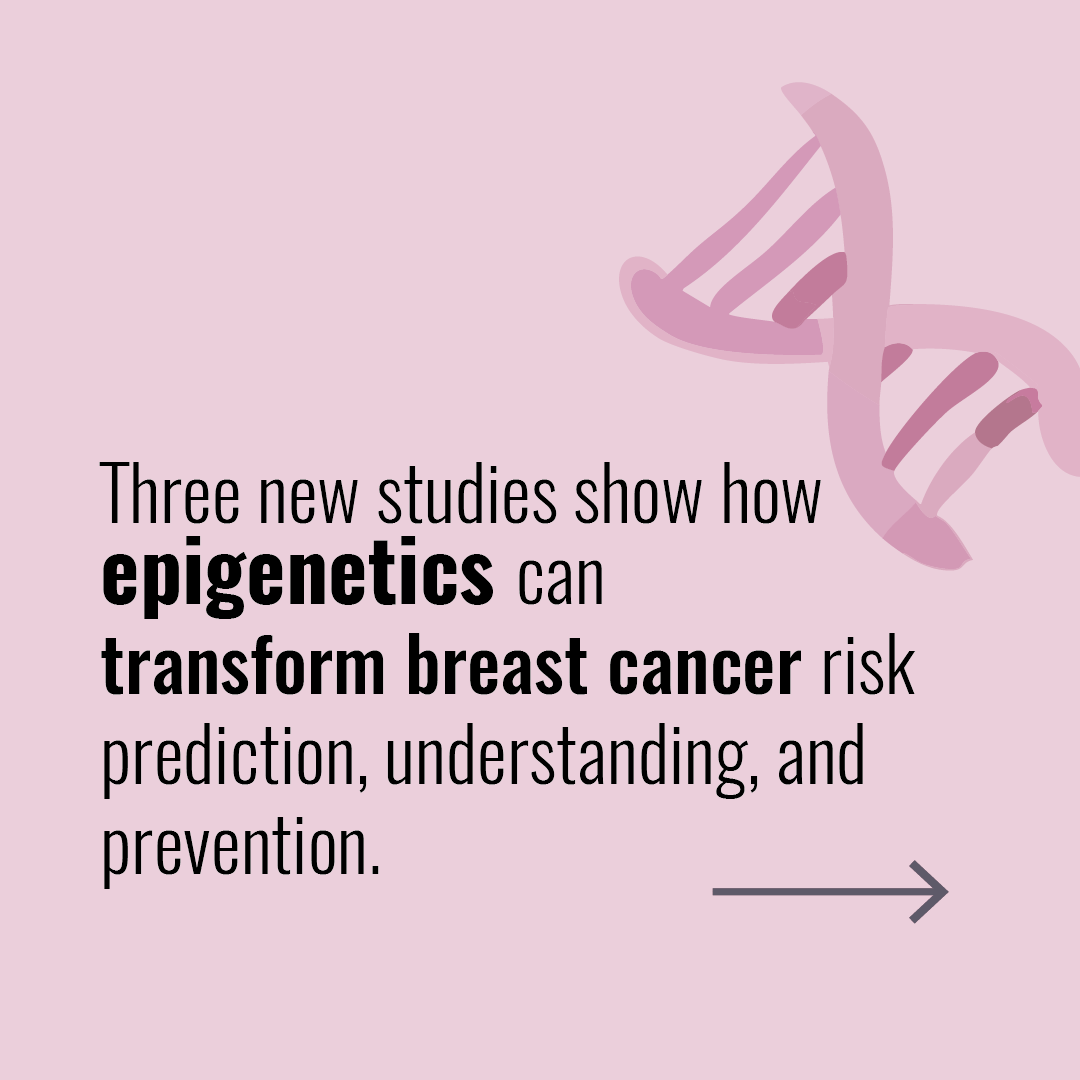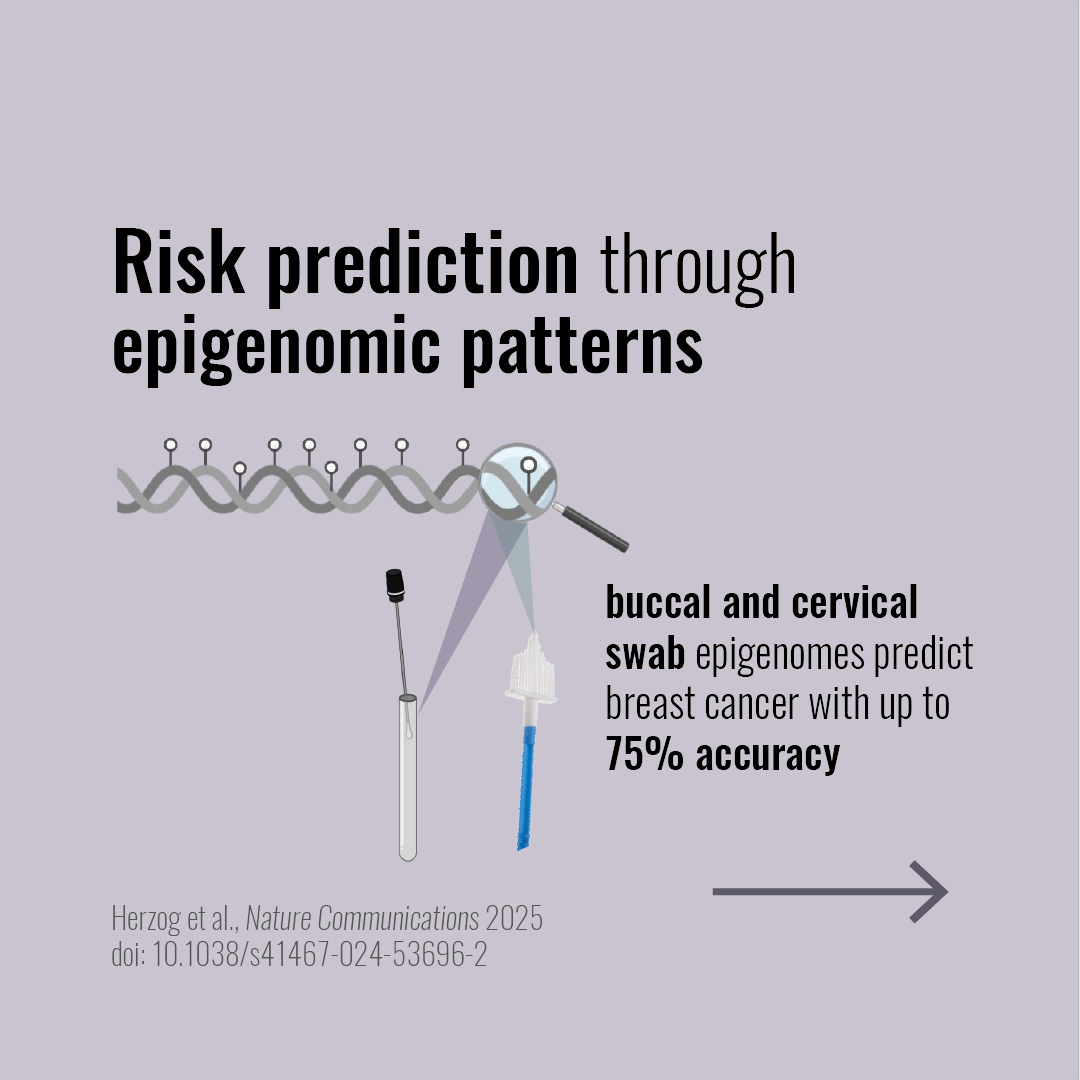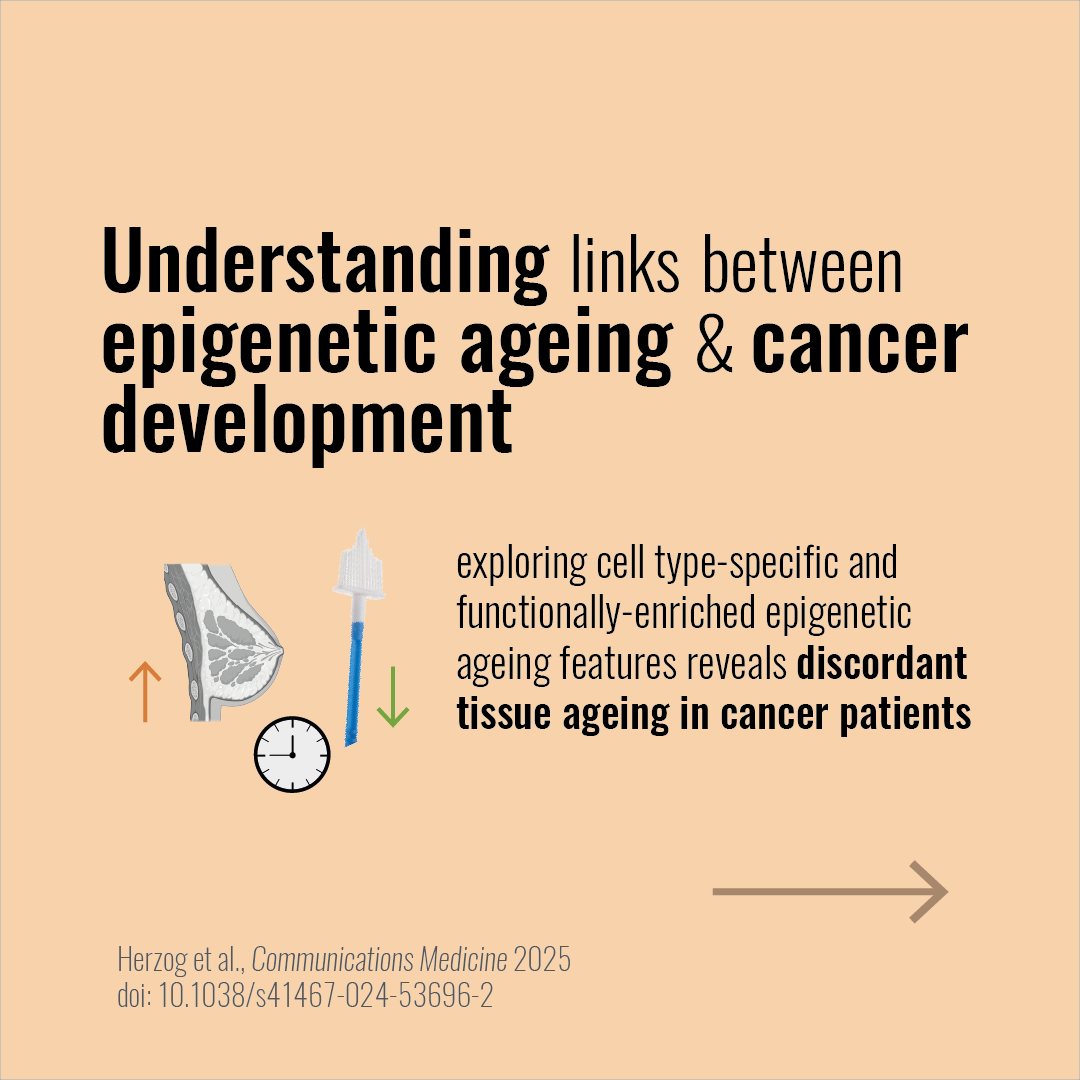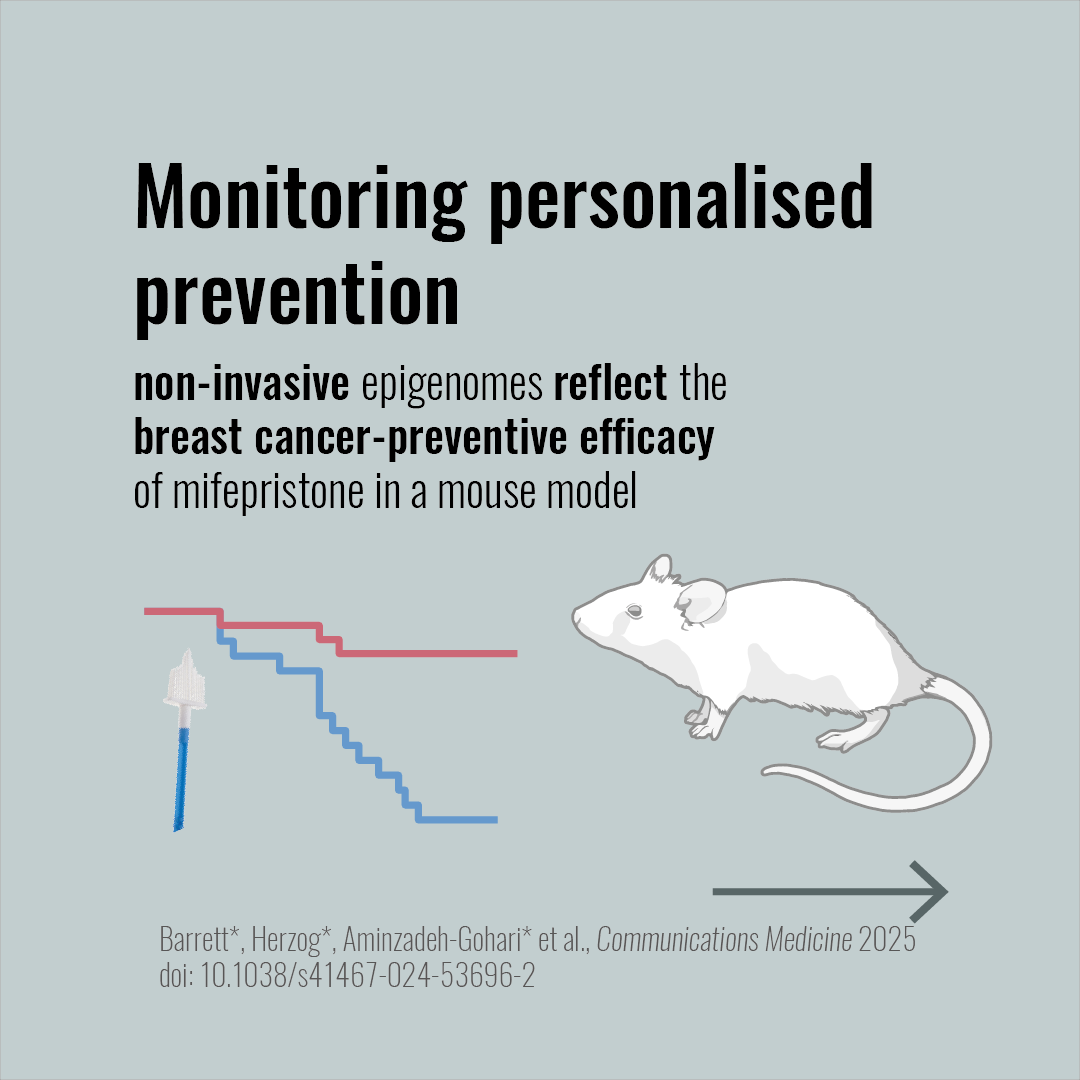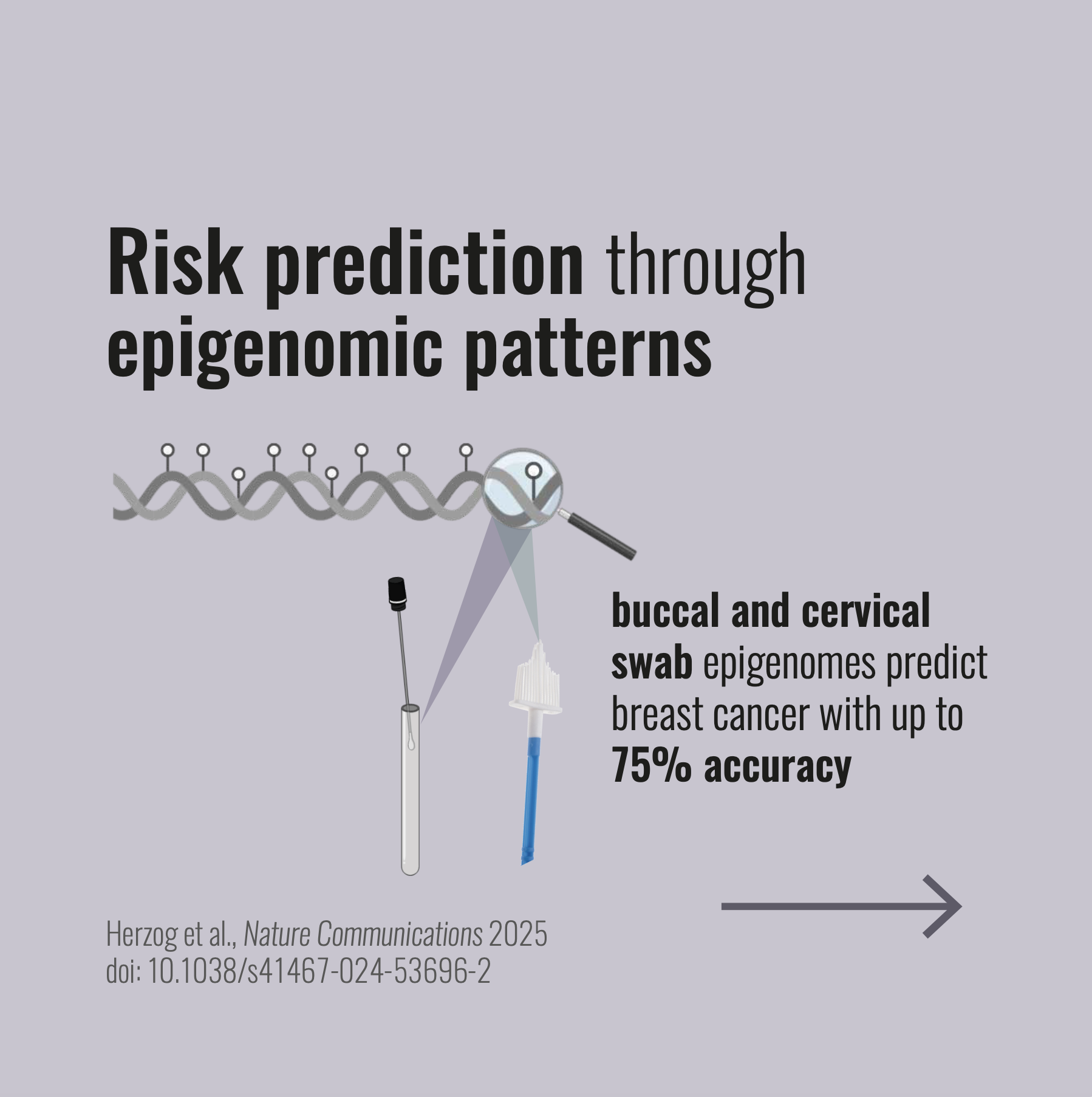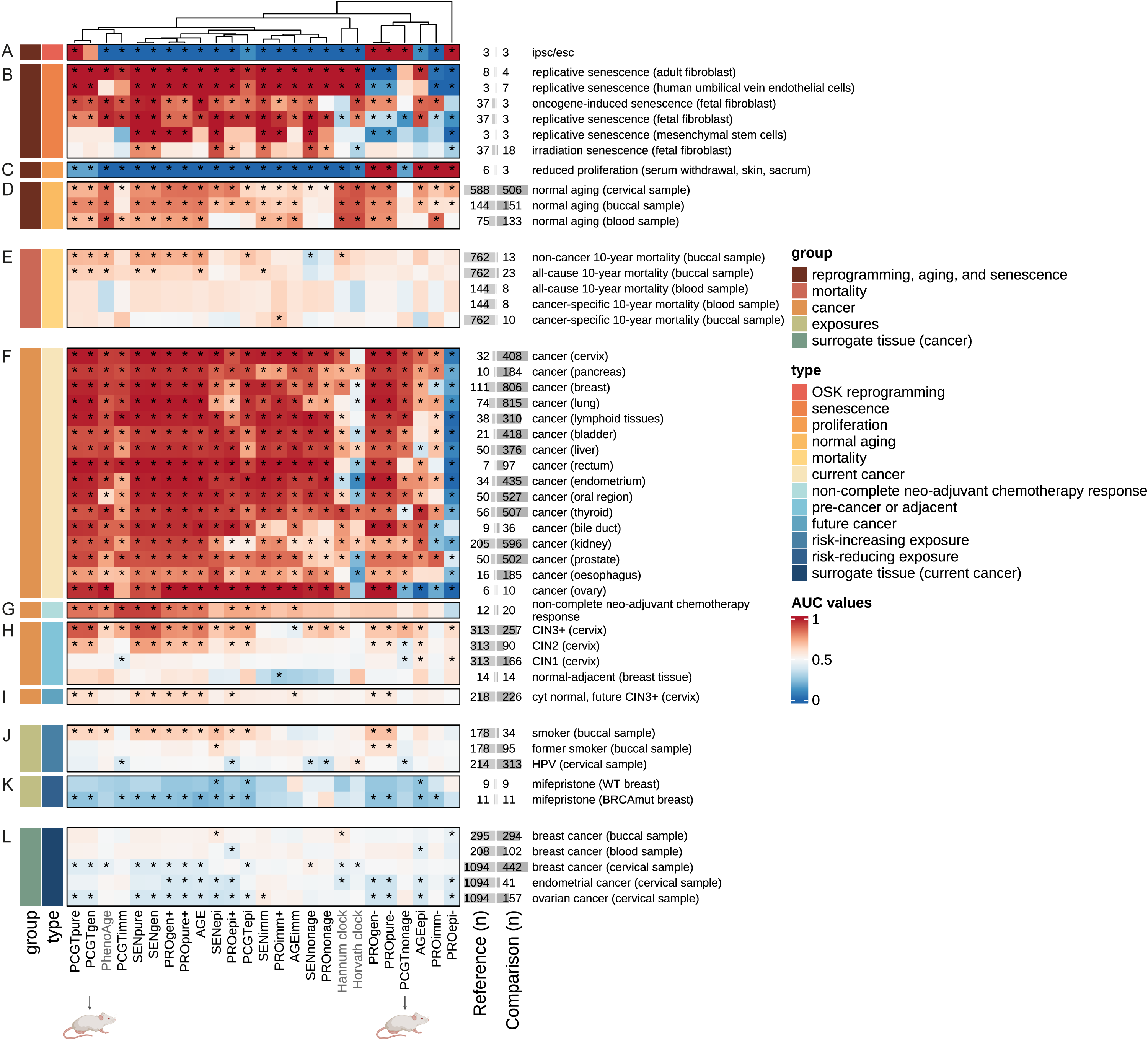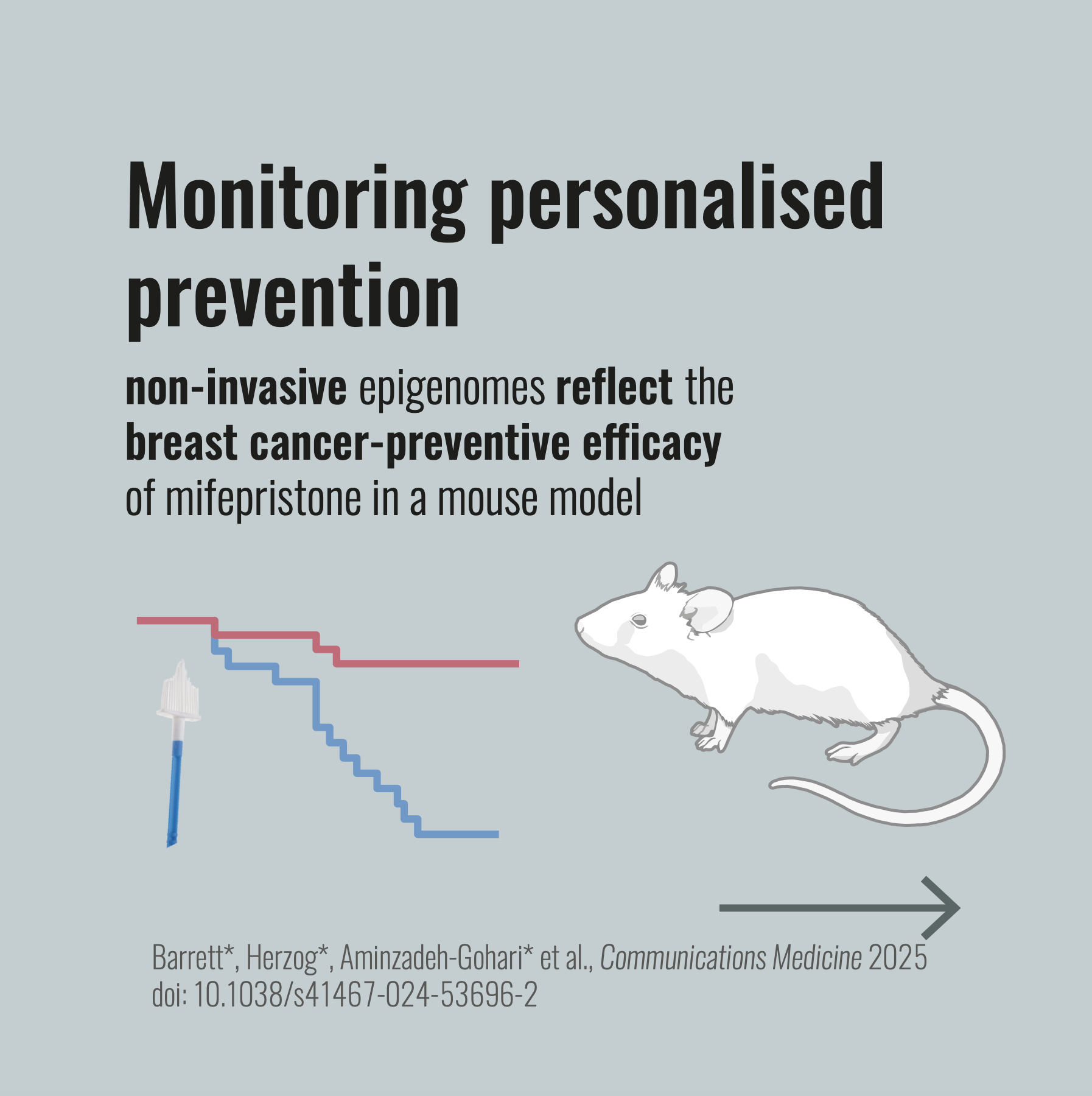Three new first-author papers. One clear message. 🧬
🚨 Three new first-author papers. One clear message: Epigenetics can transform how we detect and prevent breast cancer - non-invasively.
I’m proud to share a new trio of studies, published today in Nature Communications and Communications Medicine. Together, they trace a path from risk prediction to biological insight to prevention through the lens of epigenomic biomarkers, measurable from non-invasive samples like buccal swabs:
🧬🔬 1. Predicting breast cancer risk from buccal swabs (Nature Communications)
We show that DNA methylation in buccal samples reflects breast tissue biology and can predict cancer risk.
⏳🧠 2. Functionally-enriched ageing signatures applied across diverse tissues (Communications Medicine)
This study challenges how we think about epigenetic clocks, showing that discordant ageing between tissues may be linked to cancer susceptibility.
💊🐭 3. Preventing breast cancer with mifepristone, tracked via the epigenome (Communications Medicine)
We demonstrate that mifepristone prevents breast cancer in mice, and that its impact can be monitored in breast and non-invasive samples alike.
🧭 Together, these studies suggest a future where disease risk is detected early and we can guide personalised prevention through epigenomic signatures in non-invasive samples.
